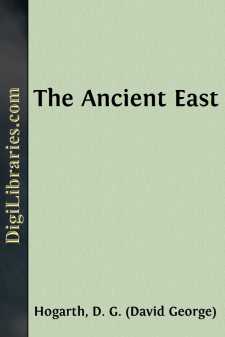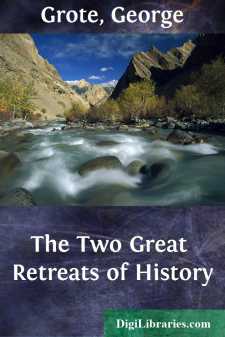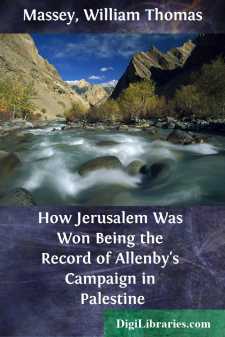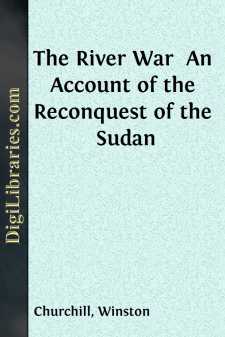History
- Africa 30
- Americas (North Central South West Indies) 50
- Ancient 68
- Asia 58
- Australia & New Zealand 8
- Canada 41
- Caribbean & West Indies 1
- Civilization 20
- Eastern Europe 12
- Europe 310
- Expeditions & Discoveries 60
- General 77
- Historical Geography 1
- Jewish 9
- Latin America 3
- Medieval 8
- Middle East
- Military 248
- Revolutionary 8
- Study & Teaching 5
- United States 353
- Western Europe 56
- World 13
Middle East Books
Sort by:
by:
Antony Bluett
CHAPTER I Mersa Matruh and the Senussi It is a little difficult to know the precise place at which to begin this narrative. There are, as it were, several points d'appui. One might describe the outward voyage, in a troopship packed to three or four times its normal peace-time capacity; where men slept on the floors, on mess-tables, and in hammocks so closely slung that once you were in it was...
more...
INTRODUCTORY The title of this book needs a word of explanation, since each of its terms can legitimately be used to denote more than one conception both of time and place. "The East" is understood widely and vaguely nowadays to include all the continent and islands of Asia, some part of Africa—the northern part where society and conditions of life are most like the Asiatic—and some regions...
more...
by:
George Grote
SKETCH OF CYRUS THE YOUNGER. (Introductory to the Retreat of the Ten Thousand Greeks.) In the year 423 B.C. Darius Nothus ascended the throne of Persia. That country was then the greatest empire in the world, and had an area nearly equal to that of the United States. The capital of this seemingly powerful realm was the ancient city of Babylon on the lower Euphrates. Here the Great King, as he was...
more...
CHAPTER I PALESTINE'S INFLUENCE ON THE WAR In a war which involved the peoples of the four quarters of the globe it was to be expected that on the world's oldest battleground would be renewed the scenes of conflict of bygone ages. There was perhaps a desire of some elements of both sides, certainly it was the unanimous wish of the Allies, to avoid the clash of arms in Palestine, and to leave...
more...
INTRODUCTION. This little work needs nothing from us to recommend it to attention. In its incidents it presents more that is keenly interesting, both to the natural and to the spiritual feelings, than it would have been easy to combine in the boldest fiction. And then it is not fiction. The manner in which the story is told leaves realities unencumbered, to produce their own impression. It might...
more...
by:
Bennet Burleigh
CHAPTER I. Introductory.—Review of Field. It is an easier and kindlier duty to set forth facts than to proclaim opinions and pronounce judgments. Before Tel-el-Kebir was fought in September 1882 and the Egyptian army beaten and disbanded, the insurrection headed by the Mahdi or False Prophet had begun. In the disrupted condition of affairs which succeeded Arabi Pasha's defeat by British arms the...
more...
CHAPTER I: THE REBELLION OF THE MAHDI The north-eastern quarter of the continent of Africa is drained and watered by the Nile. Among and about the headstreams and tributaries of this mighty river lie the wide and fertile provinces of the Egyptian Soudan. Situated in the very centre of the land, these remote regions are on every side divided from the seas by five hundred miles of mountain, swamp, or...
more...
EGYPT AND THE SUEZ CANAL The Holy Land has been the scene of war since the dawn of History. Long before Belgium became the cock-pit of Europe, Palestine was the cock-pit of the known world. Here, on the high road between Asia and Africa, were fought the great wars of Egyptians and Assyrians, Israelites and Canaanites, Greeks and Romans, Saracens and Crusaders. With these few square miles are associated...
more...
A NARRATIVE &c. &c. &c. I arrived at the camp at Wady Haifa on the Second Cataract, on the 16th of the moon Zilhadge, in the year of the Hegira 3255, where I found about four thousand troops, consisting of Turkish cavalry, infantry and artillery, and a considerable proportion of Bedouin cavalry and Mogrebin foot soldiers, besides about one hundred and twenty large boats loaded with...
more...
by:
George Rawlinson
CHAPTER I—THE LAND Phoenicia—Origin of the name—Spread of the namesouthwards—Real length of Phoenicia along the coast—Breadth and area—General character of the region—ThePlains—Plain of Sharon—Plain of Acre—Plain of Tyre—Plainof Sidon—Plain of Berytus—Plain of Marathus—Hillyregions—Mountain ranges—Carmel—Casius—Bargylus—Lebanon—Beauty of Lebanon—Rivers—The...
more...











